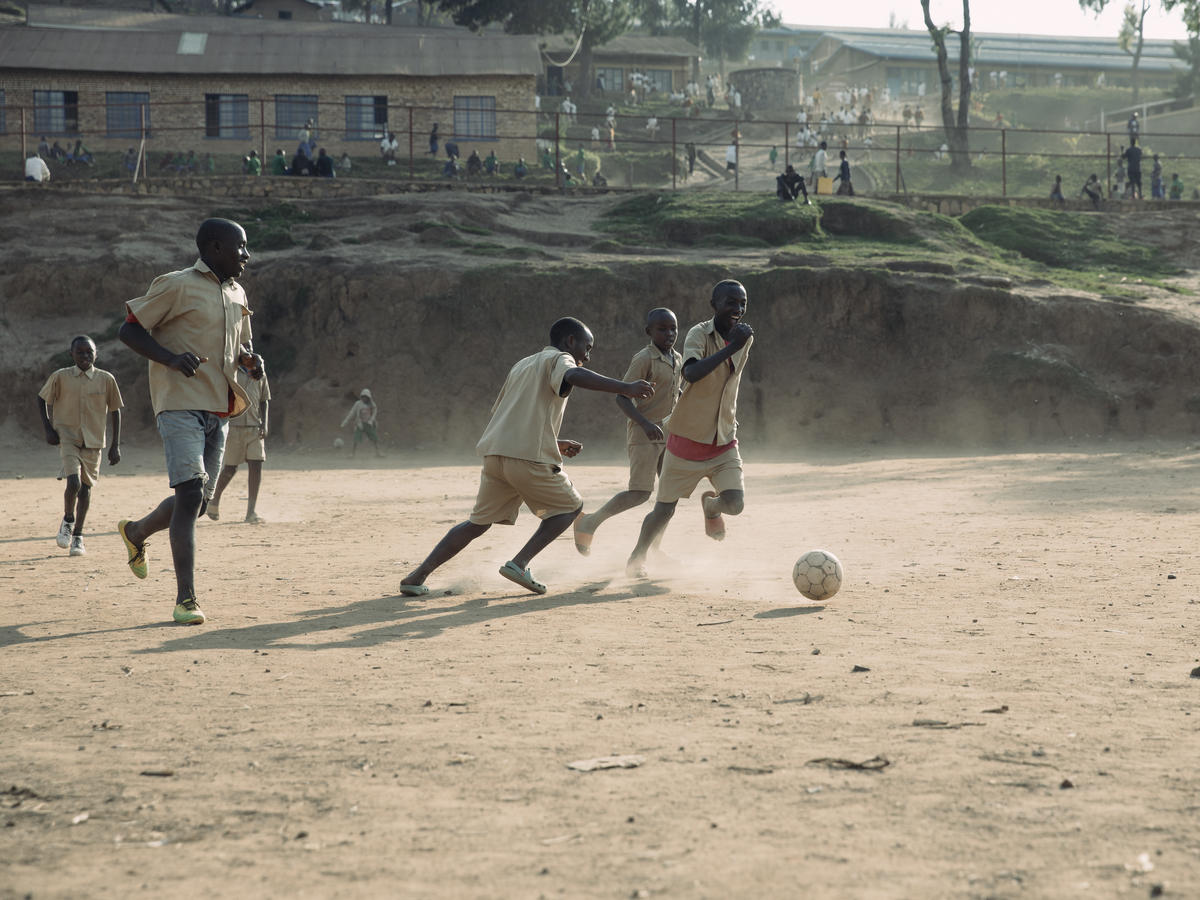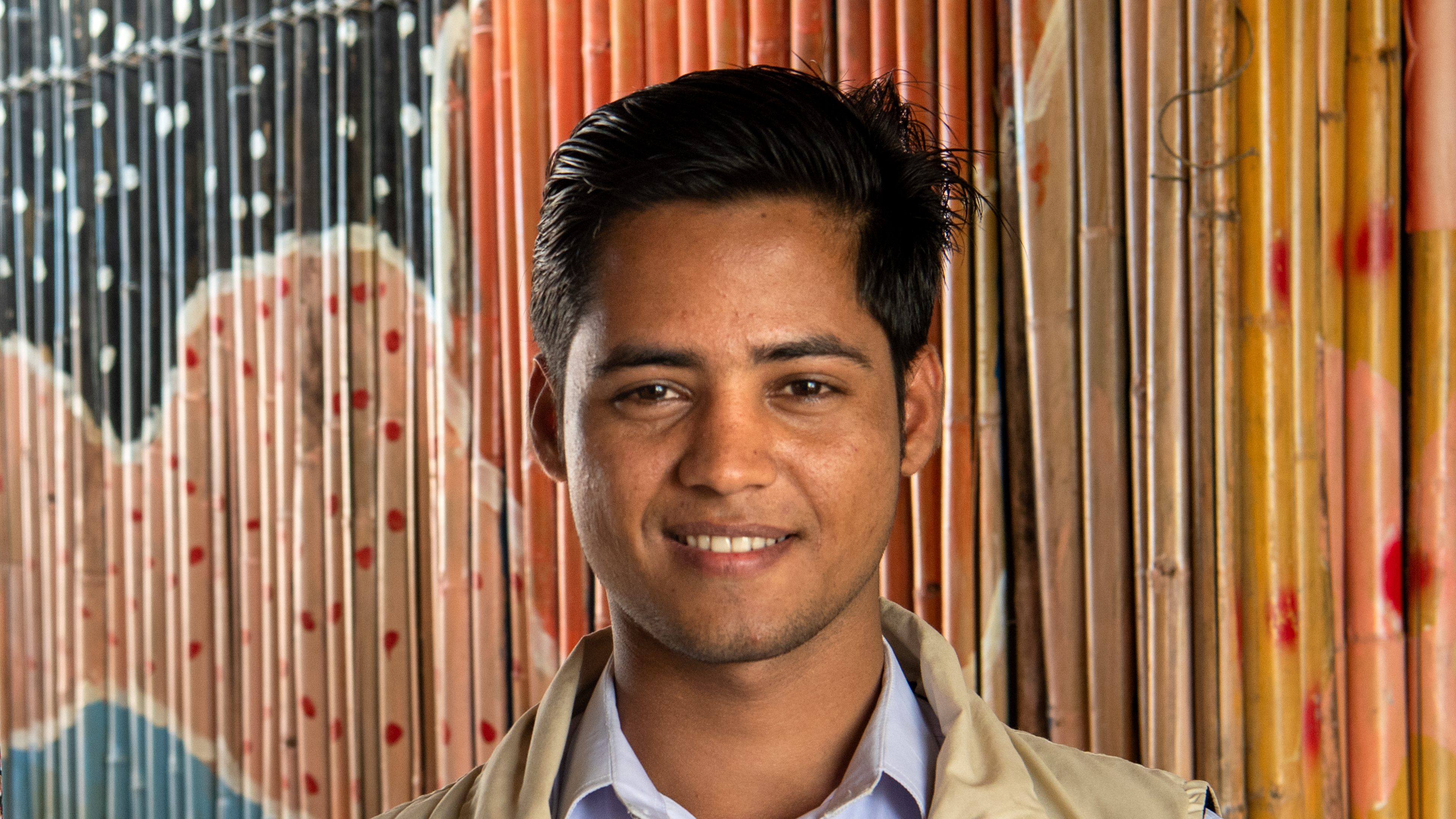Lubbers hails Afghan returns, but says more needs to be done for child refugees worldwide
Lubbers hails Afghan returns, but says more needs to be done for child refugees worldwide

Afghan children return from Pakistan to a hopeful future in Afghanistan.
UNITED NATIONS, New York, May 10 (UNHCR) - High Commissioner Ruud Lubbers said Thursday that the massive return of Afghan refugees during the past nine weeks constitutes a vote of confidence in their country, adding that the UN refugee agency will almost certainly reach its target of helping 1.2 million people return home this year.
But the High Commissioner noted during a television interview that donors were proving to be "a bit sluggish". As a result, UNHCR had received only 60 percent of the funds it needs to finance the return this year of 1.2 million of the more than 3.5 million Afghans who fled to Pakistan, Iran and other countries in the region.
UNHCR needs $271 million over a 15-month period ending in December this year, of which $171 million has been collected. The current repatriation operation costs more than $20 million a month.
"At this moment this is a massive vote of confidence in their country, a vote of confidence in Chairman Karzai, and I may say a vote of confidence in UNHCR," Lubbers told the public television programme "The News Hour", referring to the thousands of people returning to Afghanistan every day.
More than 531,000 Afghan refugees have gone home since UNHCR began assisting repatriation on March 1, the vast majority from Pakistan but an increasing number from Iran and Central Asian states. In addition, some 150,000 internally displaced persons have returned to their villages, bringing the total number of people who are back home to 681,000.
The agency hopes to help 1.2 million persons return home this year, and Lubbers said it was almost certain that the target would be met. In fact, the 400,000-person target for Pakistan has already been surpassed, with almost 480,000 Afghans having crossed the border from that country.
"We don't expect all Afghans to go back," Lubbers said. "We simply don't know how many are going to return," he said.
The High Commissioner, who is visiting the United Nations for the General Assembly's special children's summit, met Thursday with Zambian President Levy Mwanawasa, Rwandan Prime Minister Bernard Makusa, and Ugandan President Yoweri Kaguta Museveni to discuss the situation in the Great Lakes region of Africa.
During his visit, the High Commissioner has frequently referred to the 62,000 Rwandan children who were reunited with their families between 1994 and 1998, saying that while it was encouraging, it was just "a drop in the ocean".
The separation of children from their families during flight is one of the issues being tackled at the summit, along with the forced conscription of minors, physical and sexual abuse, the lack of education among refugee children, and the spread of contagious diseases, especially the HIV/AIDS virus.
During a UNHCR-organised panel on refugee children Thursday, Lubbers sharply criticised Western industrialised countries who detain child refugees and asylum seekers while their applications are being considered. He said that when children seek asylum in Western countries, "we have these very well-organised governments and nice-speaking parliamentarians who are responsible for putting them in detention centres, often alongside criminals".
In an address Wednesday evening to the UN General Assembly, Lubbers said that "children are our mirror to the future," but if "all they know is deprivation, violence and exploitation, it is unlikely that they will contribute to the development of stable, just and productive societies".
He said refugee children were among the most vulnerable of all the world's children. "These children deserve special attention," Lubbers said, adding that many lack basic health care, food, water and shelter.
Referring to allegations that humanitarian workers have demanded sexual favours of refugee women and girls in exchange for food and other items, the High Commissioner told the General Assembly that "we have to do better to prevent sexual violence and sexual exploitation".
"There is only one way to do this," he added. "As the Secretary-General said, zero tolerance. One case is one too many."
The refugee agency chief cited the improvement of camp layouts and modification of the food distribution system as examples of preventive steps to protect women and children. He said his agency was currently working with non-governmental organisations on the reforms.
Lubbers added that it was "vital to monitor compliance and ensure accountability" of those who violate children's fundamental rights.
Refugee children - defined as asylum seekers, refugees, and others such as the internally displaced under the age of 18 - make up about 39 percent, or 7.7 million, of the total population of concern to UNHCR.
Ganga Adhikari, a 17-year-old Bhutanese refugee living in a camp in Nepal, best described the basic challenge regarding refugee children. She participated in a panel with the High Commissioner and took the occasion to present him with a petition signed by 50,000 Bhutanese refugee children to Secretary-General Kofi Annan, US President George W. Bush, and UN High Commissioner for Human Rights Mary Robinson.
"My message to them and to the world is that children should not be made refugees, homeless and stateless," she said simply.









